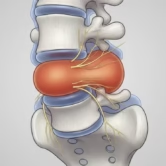
Chronic pain can significantly impact daily life for millions around the globe, prompting many individuals to explore alternative therapies such as naturopathy. Naturopathy offers a holistic approach to managing chronic pain, focusing on natural therapies and lifestyle changes to enhance overall health. In this blog, we will explore the principles of naturopathy, its application in pain management, and how it differs from conventional methods, among other related topics.
What is Naturopathy?
Naturopathy is a holistic approach to health care that emphasizes the use of natural remedies and the body’s inherent ability to restore balance. It combines various therapies, such as nutrition, herbal medicine, and lifestyle counselling, to promote well-being and address chronic conditions, including pain management. Naturopathic practitioners emphasize the importance of identifying the root cause of pain, using non-invasive treatments to support the body’s natural processes.
Bottom line, naturopathy offers a comprehensive and personalized approach to chronic pain, focusing on natural treatments and lifestyle changes to improve overall health.
How Does Naturopathy for Pain Management Work?
Naturopathy for pain management works by addressing the underlying causes of pain through natural therapies and lifestyle modifications. It emphasizes the use of herbal medicine, dietary changes, and stress management techniques to reduce pain levels and enhance overall well-being.
| Herbal Medicine | Utilizes plant-based compounds known for their anti-inflammatory and analgesic properties, which can help reduce pain and inflammation naturally. |
| Dietary Adjustments | Aims to minimize the intake of inflammatory foods while integrating nutrient-rich options that may enhance the body’s natural capacity to manage discomfort. |
| Stress Management | Incorporates techniques such as meditation and yoga, which can reduce stress-induced pain by calming the nervous system. |
| Exercise and Movement | Encourages gentle exercise and movement therapies to improve mobility and reduce stiffness, often in collaboration with physiotherapists. |
| Acupuncture | A traditional practice involving the insertion of thin needles to stimulate specific points on the body, which can help alleviate chronic pain. |
| Massage Therapy | Employs various techniques to reduce muscle tension and improve circulation, aiding in pain reduction and relaxation. |
| Hydrotherapy | Utilizes water-based treatments to decrease pain and improve circulation, often used in conjunction with other naturopathic treatments. |
In summary, naturopathy for pain management offers a holistic approach that incorporates various natural therapies to address pain, emphasizing overall health improvement and pain reduction.
How Does Naturopathy Differ From Conventional Pain Management?
Naturopathy differs from conventional pain management by focusing on natural and holistic treatments rather than pharmaceutical interventions. It emphasizes individualized care, addressing the root causes of pain, and enhancing overall health through lifestyle changes and natural therapies.
- Natural Focus: Naturopathy prioritizes natural remedies like herbal treatments and dietary changes, in contrast to conventional medicine’s reliance on pharmaceuticals.
- Holistic Approach: It considers the whole person, including mental, physical, and emotional aspects, rather than focusing solely on symptoms.
- Individualized Treatment: Naturopathic care is tailored to the individual, with personalized treatment plans designed to address specific needs and conditions.
- Preventive Care: Emphasizes prevention by addressing lifestyle factors and promoting healthy habits to reduce the risk of pain recurrence.
- Collaborative Care: Often involves working alongside other healthcare professionals such as physiotherapists to provide a comprehensive approach to pain management.
- Non-Invasive Treatments: Utilizes non-invasive methods, reducing the risk of side effects associated with surgical or pharmaceutical interventions.
In brief, naturopathy offers a distinct, holistic approach to pain management, focusing on natural remedies and personalized care to address the root causes of pain and enhance overall health.
Which Chronic Pain Conditions Can Naturopathy Help Treat?
Naturopathy can help treat a variety of chronic pain conditions by addressing underlying causes and promoting the body’s natural ability to manage pain. Conditions such as arthritis, fibromyalgia, and migraines are commonly addressed through naturopathic treatments.
- Arthritis: Naturopathy can reduce inflammation and joint pain through dietary changes, herbal remedies, and physical rehabilitation techniques such as massage.
- Fibromyalgia: Employs stress reduction techniques, dietary modifications, and herbal treatments to alleviate widespread musculoskeletal pain.
- Migraines: Focuses on identifying and addressing triggers, using nutritional support and stress management to reduce frequency and intensity.
- Chronic Back Pain: Utilizes exercise, posture correction, and herbal medicine to relieve pain and improve mobility.
- Tendinitis: Promotes recovery through anti-inflammatory diets and therapies like acupuncture and massage to reduce pain and swelling.
- Carpal Tunnel Syndrome: Combines ergonomic adjustments, herbal treatments, and physical rehabilitation strategies to alleviate symptoms.
Overall, naturopathy provides a comprehensive approach to managing various chronic pain conditions, focusing on natural therapies and lifestyle changes to promote recovery and improve quality of life.
What Naturopathic Treatments Are Used For Chronic Pain?
Naturopathic treatments for chronic pain focus on natural therapies and lifestyle modifications, aiming to address the root causes of pain and promote overall health. Common treatments include herbal medicine, dietary changes, and stress management techniques.
- Herbal Medicine: Uses plant-based remedies known for their pain-relieving and anti-inflammatory properties, such as turmeric and ginger.
- Nutritional Modifications: Focuses on minimizing foods that may contribute to inflammation while integrating beneficial nutrients that promote joint wellness and alleviate discomfort.
- Acupuncture: Employs traditional techniques to stimulate the body’s energy flow, reducing pain and promoting relaxation.
- Massage Therapy: Utilizes various techniques to reduce muscle tension, improve circulation, and alleviate pain.
- Hydrotherapy: Involves water-based treatments that can soothe pain and improve mobility, often used in combination with other therapies.
- Stress Management: Incorporates practices like meditation and yoga to reduce stress-induced pain and enhance mental well-being.
In summary, naturopathic treatments for chronic pain focus on natural and holistic methods, emphasizing lifestyle changes and personalized care to alleviate pain and improve health.
Can Naturopathy Reduce Reliance On Pain Medication?
Naturopathy can potentially reduce reliance on pain medication by addressing the root causes of pain through natural therapies and lifestyle modifications. It emphasizes treatments like herbal medicine, dietary changes, and stress management, which can alleviate pain and improve overall well-being.
By focusing on the body’s natural ability to manage pain, naturopathy aims to provide long-term solutions rather than temporary relief. Herbal remedies such as willow bark and turmeric offer natural alternatives to painkillers, while dietary adjustments can help reduce inflammation and promote recovery. Stress management techniques, including meditation and yoga, can further reduce pain levels by calming the nervous system.
Overall, naturopathy offers a holistic approach that may decrease the need for pain medication by using natural therapies and lifestyle changes to manage pain effectively and enhance overall health.
What Types of Pain Can Naturopathy Not Help With?
Naturopathy may not be effective for certain types of pain that require immediate medical intervention or are beyond the scope of natural therapies. Examples include acute injuries, surgical pain, and conditions requiring pharmaceutical intervention.
- Acute Injuries: Severe injuries like fractures or severe burns that require urgent medical attention are not suitable for naturopathic treatments alone.
- Surgical Pain: Managing pain after surgery often necessitates targeted medical attention and may not be sufficiently addressed through naturopathic approaches alone.
- Cancer Pain: Pain associated with cancer treatment may require specific pharmaceutical interventions that are not addressed by naturopathy.
- Severe Infections: Pain from severe infections necessitates antibiotics and medical intervention, rather than natural therapies.
- Neuropathic Pain: Complex conditions like neuropathic pain might require medications for effective management, alongside naturopathic support.
In short, while naturopathy offers valuable support for many pain conditions, it may not be suitable for acute or severe pain requiring immediate medical care and pharmaceutical intervention.
How Long Does It Take to See Results With Naturopathy?
The time it takes to see results with naturopathy varies depending on the individual’s condition, adherence to treatment, and overall health. Some people may experience improvements within a few weeks, while others may require several months of consistent therapy.
Naturopathic treatments prioritize sustainable health enhancements over temporary solutions. The gradual nature of these therapies, such as dietary changes and herbal medicine, means that noticeable results may take time. Stress management techniques and lifestyle changes also contribute to the overall efficacy of the treatment, requiring commitment and patience.
In summary, the time frame for seeing results with naturopathy varies, with some individuals experiencing improvements in weeks, while others may take months, depending on their specific condition and adherence to the treatment plan.
Are There Any Risks Or Side Effects Of Naturopathic Treatments?
Naturopathic treatments are generally safe, but like any healthcare approach, they may carry some risks or side effects. These can vary depending on the specific treatment and individual response. Common considerations include potential allergic reactions, interactions with medications, and the importance of professional guidance.
| Allergic Reactions | Herbal remedies may cause allergic reactions in some individuals, highlighting the need for careful selection and monitoring. |
| Medication Interactions | Certain natural supplements can interact with prescription medications, underscoring the importance of consulting a professional. |
| Overuse of Supplements | Excessive use of supplements without professional guidance can lead to unintended health issues. |
| Delayed Conventional Treatment | Relying solely on naturopathy for serious conditions may delay necessary conventional medical care. |
In brief, while naturopathy is generally safe, it is essential to consult a qualified practitioner to minimize risks and ensure treatments are appropriate and effective.
What Should You Expect In Your First Naturopathy Consultation For Chronic Pain?
In your first naturopathy consultation for pain, expect a comprehensive assessment focusing on your overall health, lifestyle, and specific pain concerns. The practitioner will discuss your medical history and tailor a personalized treatment plan that may include dietary changes, herbal remedies, and lifestyle adjustments.
- Comprehensive Assessment: The practitioner will evaluate your overall health, lifestyle, and specific pain concerns to tailor a personalized treatment plan.
- Medical History Discussion: Expect a detailed discussion about your medical history, including past treatments and current medication use.
- Dietary Review: The practitioner may review your diet and suggest modifications to support pain management and overall health.
- Lifestyle Counselling: Advice on lifestyle changes such as exercise routines and stress management techniques will be provided.
- Treatment Plan Development: A personalized treatment plan, incorporating various naturopathic therapies, will be designed to address your specific needs.
To sum up, your first naturopathy consultation for pain will involve a detailed assessment and personalized treatment plan aimed at addressing your specific health concerns through natural therapies and lifestyle changes.
Can Herbal Remedies Provide Lasting Relief For Chronic Pain?
Herbal remedies can offer lasting relief for chronic pain by addressing inflammation and supporting the body’s natural pain management processes. Certain herbs, including turmeric, willow bark, and ginger, are well-known for their ability to alleviate discomfort and can be incorporated into a holistic naturopathic treatment strategy.
Herbal remedies are often used in combination with other naturopathic therapies, such as dietary changes and stress management, to enhance their effectiveness. While herbal treatments can be beneficial, it is crucial to consult a qualified practitioner to ensure the correct dosage and avoid interactions with other medications. Additionally, the effectiveness of herbal remedies may vary from person to person, and results might take time to become apparent.
To sum up, herbal remedies can provide lasting relief for chronic pain when used as part of a comprehensive naturopathic approach, emphasizing personalized care and attention to individual needs.
How Does Stress Management In Naturopathy Affect Pain Levels?
Stress management in naturopathy plays a significant role in reducing pain levels by calming the nervous system and promoting relaxation. Techniques such as meditation, yoga, and deep breathing are commonly used to help manage stress and alleviate pain.
- Meditation: Encourages mindfulness and relaxation, reducing stress-induced pain by calming the mind and body.
- Yoga: Combines physical postures, breathing exercises, and meditation to enhance flexibility, reduce stress, and alleviate pain.
- Deep Breathing: Helps lower stress levels and reduce tension in the body, contributing to pain relief.
- Progressive Muscle Relaxation: Involves tensing and relaxing muscle groups to reduce physical tension and stress-related pain.
Overall, stress management techniques in naturopathy significantly impact pain levels by promoting relaxation and reducing stress, thereby contributing to overall health and well-being.
Relieve Pain Naturally
Naturopathy offers a holistic and personalized approach to managing chronic pain through natural therapies and lifestyle modifications. By focusing on the root causes of pain and promoting overall health, naturopathy provides an alternative to conventional pain management methods.
If you’re seeking personalized support for chronic pain, book a session with the team at BeActive Physio in Oakville for a comprehensive naturopathic treatment plan tailored to your needs.
Frequently Asked Questions
Can Naturopathy Be Combined With Other Therapies?
Yes, naturopathy can complement other therapies like physiotherapy and acupuncture to enhance pain management. Combining treatments can provide a more holistic approach, addressing different aspects of pain while promoting overall health and recovery.
Is Naturopathy Suitable For All Ages?
Naturopathy can be adapted to suit individuals of all ages, from children to seniors. Treatment plans are personalized to address the unique needs and health conditions of each client, ensuring safe and effective care.
How Often Should I Visit A Naturopath For Pain Management?
The frequency of visits depends on the individual’s condition and treatment plan. Initially, more frequent visits may be necessary, which may decrease as progress is made. A naturopath will tailor the schedule to your specific needs.
Are Naturopathic Treatments Covered By Insurance?
Some insurance plans may cover naturopathic treatments, depending on the provider and policy. It is advisable to check with your insurance company to determine coverage options for naturopathic care.
What Qualifications Should I Look For In A Naturopath?
Look for licensed naturopathic practitioners who have completed accredited education and training programs. They should be registered with relevant professional bodies, ensuring they adhere to standards of practice and ethics.




